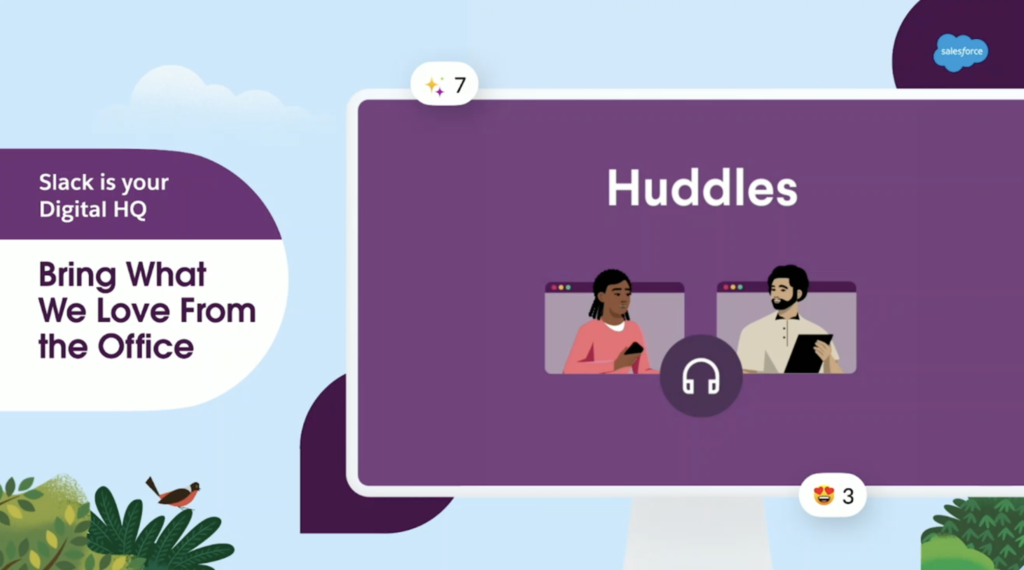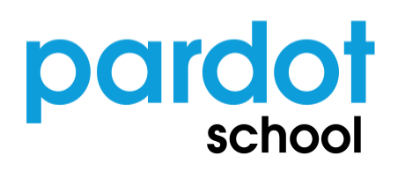5 Important Salesforce Job Trends for 2023
- January 9, 2023
- Pardot Careers, Salesforce Ben | The Drip


As we start a new year in the world of Salesforce, it’s time to reflect, take stock of what’s currently happening, and look forward to what the Salesforce ecosystem might bring in 2023.
At the start of 2022, the tech world was still riding high from the post COVID-19 digital transformation boom. However, we now find ourselves in a very different situation. A global economic slowdown, war, rising prices, and layoffs mean that 2023 might not be as optimistically viewed as 2022. Should the Salesforce ecosystem be worried? Or should we focus on the recession-proof business model that Salesforce has built up over the years?
In this article, we speak to thought leaders from around the Salesforce ecosystem, and try to form an idea of what career and job trends Salesforce professionals can expect in 2023.
Looking Back on 2022
At the start of last year, we predicted four key job trends for 2022. It’s interesting to look at these predictions, both from an accuracy standpoint and also to see how these job trends might influence the future.
Due to the increase in digital transformations throughout the pandemic, this propelled SaaS technology to become a huge priority for businesses, and in turn created a skills shortage for Salesforce professionals. This was made worse by the “Great Resignation”, with employees looking to switch jobs for higher pay and more favorable benefits such as remote working.
This prompted Salesforce and other training providers to double down on entry-level Salesforce training programs such as Pathfinders and Clicked, with many of these programs citing the demand of “9.3M New Jobs by 2026” from the IDC paper in 2021.
But are these numbers still as relevant with the global economic challenges? There are often threads on the Salesforce Reddit channel with talk of over-saturation of entry-level Salesforce professionals with certifications, but no experience. This could, however, be interpreted as a challenge to provide entry-level Salesforce professionals with the right kind of experience-based training – something that training partner, Clicked, is trying to solve.
With millions of new professionals joining the ecosystem, it’s safe to say that Salesforce isn’t the niche market that it might have been a few years prior. But how will this affect the Salesforce job market?
Current salaries for entry-level Salesforce professionals, especially in the US, are pretty high, with salaries of $70K+ being quoted. Should this number come down, it would make it both more affordable for companies and play a part in opening up more job opportunities for entry-level professionals.
This is exactly the question that Erick Mahle, Co-Founder of Ohanaly, has posed on LinkedIn. This particular question has resulted in a healthy debate of lowering the entry-level Salesforce salary to around $47K.
“One interesting observation that remains to be seen is if 2023 will be the year that the Salesforce entry-level market (at least in the United States) will balance itself out. The US has been known for a long time to hold the highest paying entry level salaries, and companies have struggled to justify some of those salaries, leading to the infamous ‘entry-level with minimum 3 years of experience’ job postings.”
One sure-fire way to allow yourself to stand out in the Salesforce ecosystem, and something we will talk a lot about in this article, is to niche down into a specialization. Last year, two of our predictions included Flow and DevOps, which have seen a massive increase in adoption due to Salesforces product direction.
So, without further ado, let’s leap into our biggest predictions for career trends in 2023…
1. The Salesforce Economy
There has been one word on everyone’s lips over the last quarter, and that word is “recession”.
There seems to be split opinions on whether we are in or are entering a recession, with many calling it fear mongering, and others starting to prepare for the storm. Whatever your own stance on this, we can look at the facts, including Salesforce’s last quarterly results, and safely say things are slowing down.
At the end of November, Salesforce released their Q3 fiscal results and reported a 14% YoY revenue growth (Or 19% in constant currency). Although growth is great to see in a challenging economy, these numbers are down from a 22% growth in Q2 and a 24% in Q1 earlier this year, and are much lower than competitors such as Microsoft & Oracle.


But are these numbers anything to worry about? In my opinion, not really. We explored whether Salesforce as a business was recession/future proof earlier this year. Coming to the conclusion that due to huge market share and continued innovation alongside a product that is not only sticky, but can support businesses during turbulent times, betting on Salesforce is a fairly safe choice.
We sat down to speak to Alex McKay, President & Co-Founder of Tequity Advisors, a specialist M&A advisory firm focused on the Salesforce ecosystem, who shared a similar view:
“If I could describe the Salesforce market in one word, it would be resilient. In general, SFDC implementation partners & ISV companies have remained highly sought-after assets for PE and strategic investment models. While we have seen valuation multiples drop in other ecosystems, the market valuations for a Salesforce partner are holding in 2022 to the same levels as 2021.”
Whilst Salesforce professionals should be optimistic about future growth for the Salesforce ecosystem, recent news about a mass Salesforce executive exodus and falling stock prices may tell another story.
In the Q3 earnings report, Salesforce also announced that Co-CEO Bret Taylor would be departing Salesforce, alongside Tableau CEO Mark Nelson and Slack CEO & Co-Founder Stewart Butterfield.
These announcements, alongside rocky Q3 earnings growth, have dropped Salesforce stock to levels not seen since 2019. Whilst you could see this as a fantastic time to buy some cheap CRM stock, the pressure does mount on CEO Marc Benioff to right the ship.
This also comes at a time where Salesforce is being pushed by activist investor Starboard to increase profitability, which may be the reason Salesforce laid off hundreds of low performing employees in November, and why a recent 10% lay off has shocked the ecosystem.
It’s important to pay close attention to the news coming out of Salesforce – after all, any changes at Salesforce can and will have a direct impact on the Salesforce ecosystem. However, currently, I don’t see anything which can’t be corrected in the short-term, with a view to continue huge growth in the long-term.
I’ll end this section with a nice quote from my chat with Stuart Mills, the VP of Trailhead & Ecosystem who provides his view of the Salesforce ecosystem and puts things into perspective:
“Due to global economic issues, the job market is unpredictable at the moment. But we have to remember that the Salesforce job market is one of the strongest there is, and people should still be optimistic about finding and landing jobs.”
2. Salesforce Specializations
You won’t be surprised to hear anyone at SalesforceBen.com talking about specializations – this is a hot topic for Salesforce professionals looking to future-proof and advance their careers. After all, if our assessment about last year is anything to go by, there is a huge amount of fresh talent entering the ecosystem, so you need to make sure you stand out from the crowd.
To put into perspective how specialized the Salesforce ecosystem is becoming, look no further than our “30+ Salesforce Specializations to Consider in 2023” post. A guide that looks through some of the most in demand specializations, ranking them by demand and effort.


Matt Hafford, Director of Cloudway Talent, a specialist recruitment partner focussing on niche skills such as Salesforce Industries & OmniStudio, sees these products as a great option for existing Salesforce professionals to learn, especially with the introduction of new Salesforce certifications focusing on this.
“A great place to start would be learning OmniStudio to bridge the gap between the Core Platform and Salesforce Industries.” – Matt Hafford, Director at Cloudway Talent
Whilst learning these products technically will move you closer to specializations, there is also a focus on some “softer”, more knowledge-based skills such as design and architecture principles, alongside industry experience.
These skills and experience-based knowledge from previous projects will help you guide customers and stakeholders to the best possible solution. Nick Hamm, CEO of 10k Advisors has the following to say on this:
“To reach the top echelons, it’s not enough to just know the technology anymore. Because companies are literally transforming their businesses, not just lifting and shifting from old tech, they want people that can come in and lead those transformations vs just take orders and implement technology.”
This advice is perhaps most important for professionals who are in their first few years as a Salesforce Admin, Developer or Consultant roles, and are yet to specialize.
“As people wish to extract more efficiency out of their Salesforce products, understanding design & architectural principles is becoming increasingly important for Salesforce Admins.” – Stuart Mills, VP of Trailhead & Ecosystem
3. Salesforce DevOps
For last year’s Salesforce career trends post, we included Salesforce DevOps as a sub-heading under specializations. This year, we’ve upgraded it into its own trend.
There’s no hiding from the fact that DevOps is taking over the ecosystem as one of the hottest new trends, and for good reason. Moving forward, it will become the de facto way to move changes from one environment to another.
Before a few weeks ago, the only way to get onboard the Salesforce DevOps train was to purchase one of the many DevOps platforms, or know how to use Salesforce DX which really required developer knowledge.
But on the 15th December, Salesforce officially announced the release of DevOps Center into GA. This free tool developed by Salesforce, democratizes DevOps tools and processes, and officially gives a nod to the Salesforce community to tell them Change Sets are dead, and DevOps is the future.


Whilst the AppExchange has been full of comprehensive DevOps solutions such as Gearset, Copado, and AutoRABIT for a number of years, the release of the DevOps Center will bring forward huge awareness to the Salesforce ecosystem about this new-age way to deploy changes.
Vernon Keenan, Founder of SalesforceDevops.net still sees masses of room for growth of DevOps tools, alongside professionals building up their expertise:
“Whilst there are multiple vendors with a variety of solutions, it’s mainly the big customers who know they need to invest in DevOps. I imagine that the implementation of DevOps Center will be the first time a lot of Salesforce Admins use GitHub, so there is still tons of room for education and training on Salesforce DevOps.”
This is a view shared by many across the Salesforce ecosystem. Whilst Salesforce DevOps roles aren’t defined as a clear career path in the Salesforce ecosystem, you can bet that 1000’s of companies are already Salesforce ISV DevOps tools, and will place a premium on Salesforce professionals that understand DevOps best practices.
This number will only grow as Salesforce’s 150,000+ customers slowly start to adopt the DevOps Center.
Nick Hamm of 10k Advisors believes that DevOps tools are a requirement for anyone that has an org of significant complexity, and is a perfect way for Salesforce Admins to stand out from the crowd:
“This is an area where a less technical admin can really differentiate themselves with a unique skill set as well. It’s worth noting that many think about DevOps mainly from a release perspective, but it’s really most effective when it’s part of a well defined and implemented SDLC and CoE, both aspects of a Salesforce program that we at 10K harp on quite a bit as being critical to success with Salesforce.”
Although focusing on a new Salesforce specialization to differentiate yourself might feel like a bit of a risk (especially in today’s job market), learning Salesforce DevOps skills in 2023 is a fantastic way to future-proof your skillset. But be wary, as this will quickly move from a bonus skill to being a requirement as more companies adopt DevOps tools & principles.
“Salesforce Admins are going to need to feel more comfortable with release management using DevOps Center, alongside an application lifecycle management tool such as Jira or Elements.Cloud. Familiarity with these tools, Kanban boards and agile management terminology such as Epics and user stories are key.” – Vernon Keenan, Founder of SalesforceDevOps.com
4. Slack Skills
Salesforce’s acquisition of Slack in 2020 was their largest ever at $27.7B. This landmark acquisition was in direct response to the remote work environment that we found ourselves in since early 2020, and is continuing to this day. In Salesforce’s own words, Slack is all about creating “your Digital HQ”.
Whilst the Slack acquisition officially closed in the summer of 2021, it wasn’t until TrailblazerDX – the flagship Salesforce event for admins and developers – that we first saw announcements on the integration of Slack into the wider Salesforce product suite.
This was doubled down on at Dreamforce with the release of Slack Canvas and the enhancement of the Huddles feature.


“We’re now seeing Slack being integrated into all of the Salesforce clouds, meaning we will see that engagement layer of Salesforce accelerating into 2023.” – Stuart Mills, VP of Trailhead & Ecosystem
Although we have seen a few great use cases for Slack and the wider Salesforce product suite through official customer success stories, I’m most excited for the solutions that we haven’t yet seen.
In 2022, Salesforce provided us with the building blocks via the Slack platform for professionals to start automating and integrating Slack into other Salesforce products. It’s just a matter of time until we start to see new use cases for how Salesforce users can engage with their CRM.
In a few years time, we may look back on Slack in a similar way to how we view Salesforce implementations. Sure, any company can use Salesforce out of the box, but it’s not until you start customizing Slack to your own business processes that you start to see the value. Nick Hamm of 10k advisors summarizes this nicely for us:
“If I were a Salesforce expert looking for what the next specialization might be, especially if I were currently an admin who maybe wasn’t technical and didn’t want to pursue development or integration, I’d start to look at Slack. Salesforce has a huge opportunity with Slack, and they’ve penetrated a lot of businesses who “get it”, but there are so many more companies who don’t get it and where it would be a huge lift to shift their culture and processes to a tool like Slack.
I predict that folks who can make that process easy, or at least have a process/package/methodology for taking a company who is still just using email and chat and doing a full Slack rollout will have a lot of opportunity in the coming years.”
5. Go With the Flow
Ever since Salesforce announced their plans to retire the Workflow Rule & Process Builder automation tools in late 2021, there has been a rush for Salesforce professionals to skill-up on Flow: the new, default declarative automation tool going forward for the Salesforce platform.
Flow is an extremely powerful tool that can be compared to Apex code, allowing admins and consultants who are more familiar with clicks than code to build solutions that are comparable to a developer’s.
As we start 2023, we are approaching the date when Salesforce switches off the ability to create new process builders – something they already did for Workflow Rules a few months back. This means Flows have turned from a bonus skill into somewhat of a requirement for any budding or existing Salesforce professionals.
Yet while the ability to create new Workflow Rules or Process Builders will be shortly switched off all together, the road to a complete Flow migration could take a while longer. Mike Bogan of Hubbl Diagnostics – a product that uncovers technical debt, risks, and opportunities within Salesforce orgs – found that only about 12% of declarative automation has been migrated to Flow [Source]..
“This means there is ~19 million hours of workflow rule migration and ~5 million hours of process builder migration effort required across the entire Salesforce ecosystem.”
Mike Bogan, Director of Product Strategy at Hubbl Diagnostics
Due to the huge complexity of migrating legacy workflow rules especially, this may buy Salesforce professionals a bit more time to skill up. Whilst Flow skills are now becoming imperative, the estimated date for end of support for these legacy tools won’t be until 2025.


Summary
There’s no denying that 2023 can feel like a bit of a daunting year for the world of tech, especially with so many factors influencing the market. However, not limiting yourself to the word-for-word version of your job description is the thing that is going to make you stand out this year.
There is no better to learn that new skill set, try out that new technology, or take that new cert. The ecosystem has always been resilient, and I think that’s something we will see demonstrated again and again this year.
This Pardot article written by:
Salesforce Ben | The Drip
Lucy Mazalon is the Head Editor & Operations Director at Salesforceben.com, Founder of THE DRIP and Salesforce Marketing Champion 2020.
Original Pardot Article: https://www.salesforceben.com/salesforce-job-trends-2023/
Find more great Pardot articles at www.salesforceben.com/the-drip/
Pardot Experts Blog
We have categorized all the different Pardot articles by topics.
Pardot Topic Categories
- Account Based Marketing (ABM) (8)
- Business Units (13)
- ChatGPT / AI (3)
- Completion Actions (5)
- Connectors (10)
- Custom Redirects (4)
- Demand Generation (8)
- Dynamic Content (5)
- Einstein Features (11)
- Email Delivery (18)
- Email Open Rates (3)
- Pardot A/B Testing (2)
- Email Mailability (16)
- Do Not Email (1)
- Double Opt-in (2)
- Opt Out / Unsubscribe (14)
- Email Preferences Page (6)
- Engagement Studio (14)
- Industries (1)
- Non Profit (1)
- Landing Pages (10)
- Lead Generation (1)
- Lead Management (12)
- Lead Routing (2)
- Lead Scoring (15)
- Leads (3)
- Marketing Analytics – B2BMA (9)
- Marketing Automation (1)
- Marketing Cloud (2)
- Marketing Cloud Account Engagement (4)
- New Pardot Features (6)
- Opportunities (2)
- Optimization (3)
- Pardot Admin (62)
- Duplicates (1)
- Marketing Ops (1)
- Pardot Alerts (1)
- Pardot API (2)
- Pardot Automations (3)
- Pardot Careers (12)
- Pardot Certifications (4)
- Pardot Consulting (1)
- Pardot Cookies (3)
- Pardot Custom Objects (3)
- Pardot Email Builder (7)
- Pardot Email Templates (9)
- HML (6)
- Pardot Events (16)
- Pardot External Actions (1)
- Pardot External Activities (4)
- Pardot Forms (27)
- Form Handlers (7)
- Pardot Integrations (21)
- Data Cloud (1)
- Slack (1)
- Pardot Lead Grading (5)
- Pardot Lead Source (2)
- Pardot Lightning (1)
- Pardot Migration (1)
- Pardot Nurture / Drip Campaigns (1)
- Pardot Personalization (3)
- Pardot Profiles (1)
- Pardot Releases (19)
- Pardot Sandboxes (2)
- Pardot Segmentation (4)
- Pardot Strategy (7)
- Pardot Sync (2)
- Pardot Sync Errors (1)
- Pardot Tracker Domains (5)
- Pardot Training (3)
- Pardot Vs Other MAPs (4)
- Pardot Website Tracking (2)
- Reporting (22)
- Salesforce and Pardot (29)
- Marketing Data Sharing (2)
- Pardot Users (3)
- Salesforce Automation (4)
- Salesforce Flows (1)
- Salesforce Campaigns (20)
- Salesforce CRM (3)
- Record Types (1)
- Salesforce Engage (3)
- Salesforce Queues (2)
- Security and Privacy (1)
- Tags (3)
- The Authors (483)
- Cheshire Impact (9)
- Greenkey Digital (47)
- Invado Solutions (37)
- Jenna Molby (9)
- Marcloud Consulting (6)
- Nebula Consulting (53)
- Pardot Geeks (38)
- Salesforce Ben | The Drip (235)
- SalesLabX (2)
- Slalom (2)
- Unfettered Marketing (45)
- Uncategorized (1)
- Website Tracking (2)
- Website Search (1)
More Pardot Articles
See all posts
This Pardot article written by:
Salesforce Ben | The Drip
Lucy Mazalon is the Head Editor & Operations Director at Salesforceben.com, Founder of THE DRIP and Salesforce Marketing Champion 2020.
Original Pardot Article: https://www.salesforceben.com/salesforce-job-trends-2023/
Find more great Pardot articles at www.salesforceben.com/the-drip/


